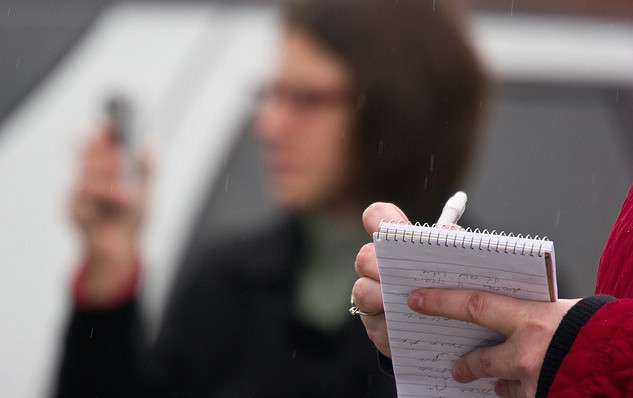(Geneva) – The UN Human Rights Council today adopted by consensus an important resolution on the safety of journalists, calling upon States to develop and implement strategies for combating impunity for attacks and violence against them. The strategies and practices endorsed by the resolution include those identified in a 2103 UN study and 2014 Human Rights Council panel discussion.
Nevertheless the resolution fell short of explicitly speaking to the need for accountability for the widespread criminalisation of, and arbitrary use of the legal system against, journalists globally.
‘Journalists are some of the world’s most at-risk human rights defenders,’ said Ben Leather of ISHR. ‘The two great advantages of this resolution are that, on the one hand, States have united in a consensus commitment to combat impunity in order to provide protection, whilst on the other hand they have shown willingness to incorporate and implement best practice and policies from around the world’.
Austria and a core group of Brazil, France, Greece, Morocco, Qatar and Tunisia led a group of over 90 co-sponsors to the resolution.
In presenting the resolution, Austrian Ambassador Thomas Hajnoczi referred to the breadth of attacks against journalists – including their arbitrary detention on grounds of national security, for example – though the core group had nevertheless resisted proposals by States and NGOs to demand an end to impunity for such legal provisions and criminalising practises which run contrary to international law. Explicitly condemning the widespread criminalisation, which ISHR and other NGOs such as ARTICLE 19 have documented globally, could have strengthened the resolution’s impact
Nonetheless the resolution contains many positive and progressive elements. In it the Council insists on accountability for those who command attacks, as well as material perpetrators, and recommends the establishment of early warning and rapid response mechanisms to give threatened journalists immediate access to protective measures. Furthermore, the draft recognises that mechanisms designed for the protection of human rights defenders can be relevant to the protection of journalists.
‘The Council has spoken. Now States must let their actions do the talking with best practise techniques implemented globally to investigateand ensure accountability for attacks against journalists as part of a broader strategy of protection’.




